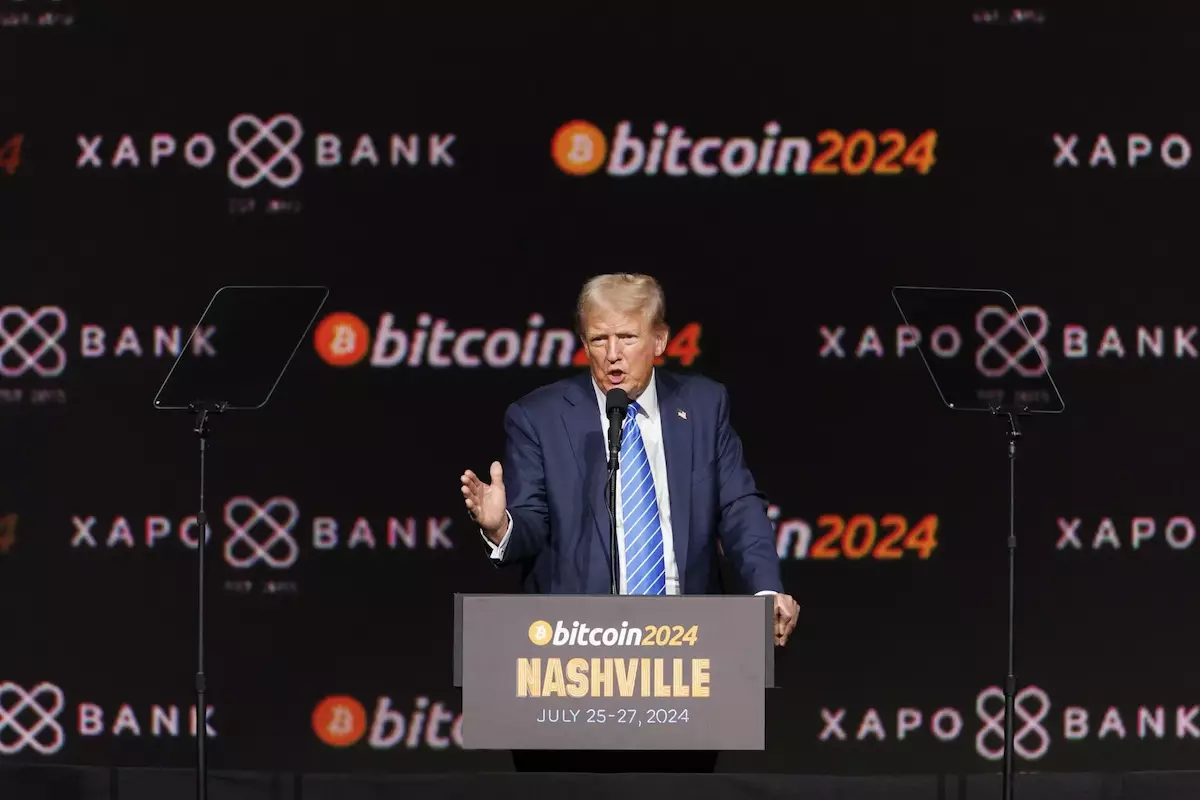The digital landscape is rapidly evolving, and the emergence of Web3 gaming is at the forefront of this transformation. As we look to the future, the possible return of Donald Trump to the presidency brings a unique set of circumstances that could profoundly influence this burgeoning sector. With changing attitudes toward cryptocurrency and blockchain technology, the coming years might usher in an environment that spurs innovation and development in Web3 gaming.
Changing Perspectives on Cryptocurrency
Donald Trump’s stance on digital currencies has made headlines, particularly in light of his previous dismissive remarks about Bitcoin. Initially labeling it a “scam,” Trump’s perspective has shifted toward a more accommodating viewpoint. This evolution reflects a broader trend, where world leaders recognize the potential of digital assets as they become increasingly integrated into global economies. Under a Trump administration, a more crypto-friendly landscape may emerge, potentially facilitating growth in Web3 gaming—a domain that thrives on decentralized technology and token economies.
The trajectory of cryptocurrency regulation will be pivotal for Web3 developers and gamers alike. By prioritizing policies that nurture the blockchain industry, Trump may pave the way for clearer guidelines that promote development rather than stifle it. This approach would encourage new projects, enhance user experiences, and create a more vibrant gaming ecosystem where ownership and value can be directly tied to players’ inputs.
The Ripple Effect of Regulatory Clarity
A significant aspect of Web3 gaming is its reliance on tokenization and decentralized economies. Currently, developers face hurdles due to a lack of clarity and excessive regulation surrounding the issuance and trading of tokens. If Trump’s administration prioritizes easing these restrictions, the resulting regulatory environment could embolden developers to innovate freely. This could also encourage traditional gaming companies to transition into the blockchain space, driven by the need to remain competitive and relevant in an increasingly digital marketplace.
The opportunity for mainstream adoption is substantial. As regulatory barriers dissolve, it will not only legitimize in-game assets but also foster a new wave of investment in decentralized platforms. Existing gaming companies might find good reason to experiment with blockchain features, such as play-to-earn models, which can attract a new demographic of users and drive user acquisition.
Investment plays a vital role in the development of any industry, and Web3 gaming is no exception. With potential new initiatives under Trump’s administration focused on bolstering the crypto landscape, venture capital interest could surge. Investors seeking high-growth opportunities may turn their sights toward decentralized gaming platforms, injecting much-needed capital that can accelerate innovation and product development.
The prospects are not limited to financial injection; with a thriving investment climate, collaboration between startups and established gaming companies could become more frequent. This melding of traditional gaming expertise and new-age blockchain innovation can result in groundbreaking products capable of attracting millions of global users who might be new to the gaming ecosystem.
The United States has historically played a significant role in shaping global policies and trends, especially in technology. Should Trump advocate for a robust and favorable regulatory framework for cryptocurrencies, it could influence other nations’ approaches to similar legislation. This ripple effect might foster international collaborations within the Web3 space while establishing the U.S. as a leader in digital innovation.
Nevertheless, while the benefits are enticing, the global dynamics must be navigated carefully. Conflicts may arise between nations with differing regulatory philosophies, and a clear framework in the U.S. could inadvertently provoke a race to the bottom as countries compete to establish more enticing ecosystems for developers and investors.
The implications of a Trump presidency on Web3 gaming could be substantial. With shifting views on cryptocurrency and a potential welcoming stance towards blockchain technology, the gaming industry’s future is ripe for development. Advocacy for regulatory clarity and crypto-friendly policies could not only ignite significant investment but also legitimate the digital economies that underlie Web3 gaming.
As the landscape continues to evolve, monitoring these policy shifts will be key for stakeholders within the gaming world. Whether through collaboration or competition, the future is poised for dynamic growth as developers, investors, and gamers adapt to an environment increasingly influenced by the digital asset revolution.
















Leave a Reply